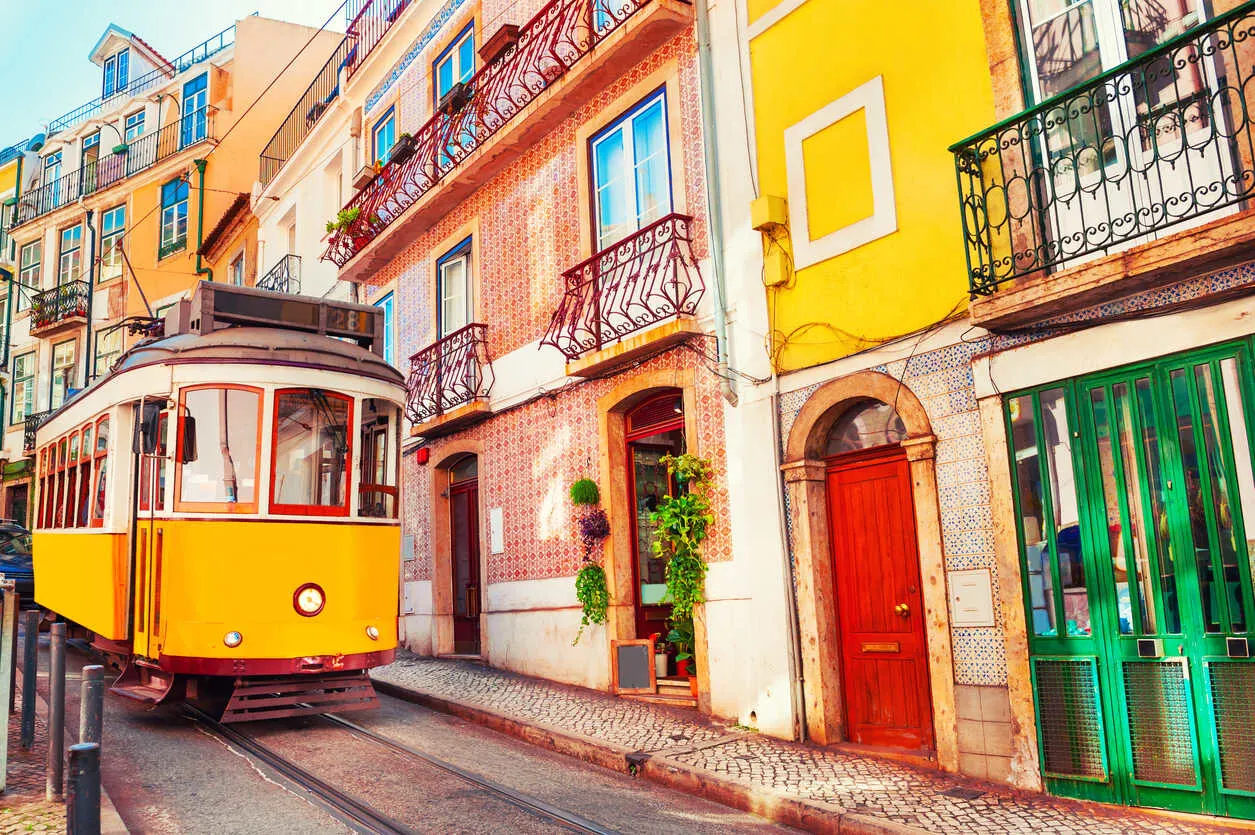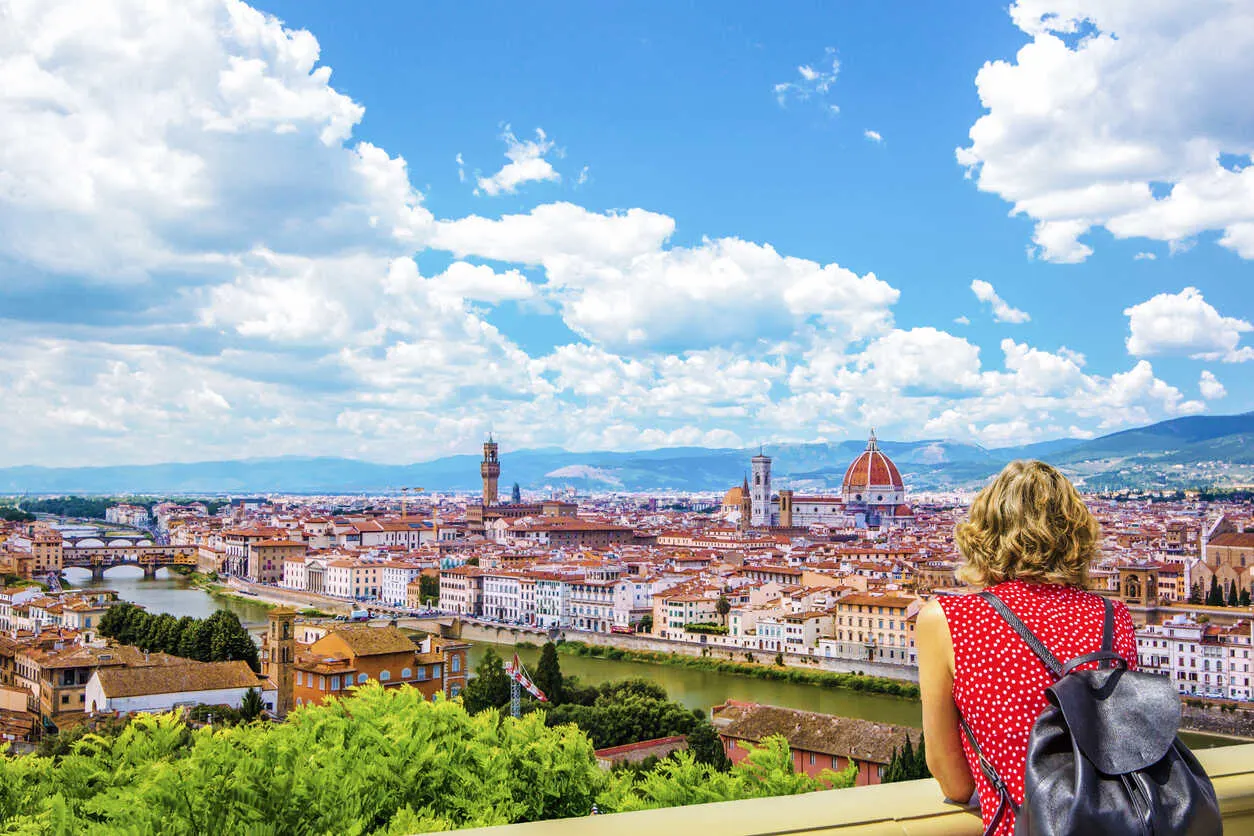How Trump’s Presidency Could Impact Your Lifestyle and Investment Options Overseas
8 min readPolitical refugees, they rush to the safety and security of America. They don’t leave America—right?
You might be surprised. Among the more than 700,000 Americans who receive their Social Security benefits abroad, you’ll find folks who left the U.S. (at least in part) for political reasons.
And to be clear: They come from both sides of the aisle. Every time there’s a Presidential election, you’ll hear people say, “If that one wins, I’m outa here.” Most don’t leave. But some do.
In the wake of Donald Trump’s re-election as president of the U.S., the mood among many Americans has noticeably darkened. Fears abound that the country will soon see the rise of “revenge politics.” People are worried that laws will quickly change, upending millions of lives as immigrants are rounded up and deported. And they’re concerned about the economic ramifications the U.S. could face as policies come into force that treat America as an island and the rest of the world as marks in a game of Three Card Monty.
And for many American women, the future to them seems far bleaker than it ever has, painted in fears that a conservative takeover in D.C. means Margaret Atwood’s The Handmade’s Tale is now as a user’s manual for female oppression.
That’s not me saying all of that. I’m just telling you what I’m hearing and reading. Moreover, a brief conversation with Global Citizens Solutions, a Lisbon-based immigration agency, reveals in the days immediately following the election “a great increase in clients interested in relocating to Portugal.”
Are people overreacting to a victory by one of the most polarizing figures in American political history? It’s too early to say. But let me address some of the issues and some of the questions that would-be expats are raising…
The policy implications of this election will impact your retirement funds, taxes, healthcare, and more. But you can protect yourself, your family, your future. In lots of safe, warm, friendly spots abroad, you can live comfortably on a budget from $2,000-$3,800 a month (all-in—housing and extras included). We’ll show you how—and where—to go.

By submitting your email address, you will receive a free subscription to IL Postcards and special offers from International Living and our affiliates. You can unsubscribe at any time, and we encourage you to read more about our Privacy Policy.
One of the bright spots amid Trump’s stated agenda is potentially ending double-taxation on Americans living abroad. The US is unique in the developed world in that it is the only major country to impose taxes based on citizenship, meaning it taxes its citizens no matter where in the world they earn their income. Other countries only tax income earned inside the country.
For expats, such a move would be a godsend.
While most of us living and working overseas don’t pay much tax to the US because of the $126,500 personal tax exemption allowed under the Foreign Earned Income Exclusion, the tax-reporting paperwork is burdensome and complicated. Ending that would benefit the millions of Americans living abroad, and the untold numbers who decide to make the move to a new life overseas.
Trump also has floated the idea of exempting Social Security from income taxes. That’s a double-edged sword.
While retirees collecting Social Security would rejoice, the exemption would help fuel inflation, since more money in pockets leads to more consumer demand, a factor that can drive inflation over time.
It would also mean fewer tax dollars flowing into the Treasury, which would require that Uncle Sam borrow even more money than he already does to meet his spending and debt-repayment obligations. America already struggles with extreme debt, and adding to the pile only exacerbates the financial challenges ahead.
Still, for a retiree who moves abroad, no tax on Social Security would make life overseas quite grand. Costs of living all over parts of Europe, Latin America, and Asia are cheap relative to America, and not having to pay tax on Social Security would mean more dollars to afford a better life abroad.
And, yes—you can collect Social Security overseas. In fact, every month, the Social Security Administration pays out to more than 700,000 recipients living outside the US.

Affordable healthcare: In Portugal, full-coverage insurance costs $2,500/year for a family of three.|©iStock/Olga_Gavrilova
Trump wants to revisit the Affordable Care Act, known as Obamacare, a promise he made in 2016 but failed to deliver on. This time around, he will likely have more of the right people in place to execute his plan.
If the Trump administration gets its way, one of the ideas would allow insurers to divide enrollees into different risk pools and offer different plans based on those health risks and the costs involved in providing care.
In short: People with pre-existing conditions could, at worst, lose coverage or see coverage denied, and at best would assuredly see their healthcare costs rise sharply. And it’s not like American healthcare is affordable to begin with.
That makes life overseas abundantly more compelling, particularly for older expats who have health issues, or those moving into that stage of life where health issues are more frequent.
Healthcare in Europe and elsewhere is so affordable that many expats pay the costs out of pocket. I had a root canal in Prague that cost me $80. I had a CT scan in Lisbon that cost me about $105—and my insurance company gave me money back because I’d accidentally overpaid.
Here in Portugal, I pay about $2,500 a year for a full-coverage, Cadillac private-insurance plan for a family of three. I paid a similar amount in the Czech Republic. But I could just get by with the state plan in each country. I’ve used both, and the care is equal to or better than you’re accustomed to in the States, though wait times for certain procedures can be longer than you’d like.
Right now, Americans can pick up and go pretty much anywhere on their passport. And maybe that doesn’t change under the incoming Trump administration.
Or… maybe it does.
Trump is talking about travel bans on certain nations, and he’s talking about imposing vast and encompassing tariffs on every product that comes into America. Both are isolationist policies at their core, and they tend to result in tit-for-tat moves by affected countries.
We could see that countries respond to travel bans and even tariffs by imposing new restrictions on US passport holders. That would still impact Americans living abroad, since most of us carry U.S. passports. But having a residence card, or even a second passport from another country, would allow for far greater travel freedoms.
As we witnessed in the first Trump presidency, foreign policy positions can be unpredictable and shift with little warning. That could—likely would—reduce the value of a U.S. passport globally.
With a residence permit in a European Union country, for example, one can easily flit about the EU just as easily as crossing a border between Colorado and Wyoming.
Cost of Living and Lifestyle
The cost of living in America long ago jumped the shark, and it’s very likely to rise even more in a Trump administration because, despite Trump’s insistences to the contrary, his economic policies are plainly inflationary.
Tax cuts and eliminating taxes on certain types of income mean more money in consumer pocketbooks, which is inflationary.
As for his tariffs, they’re not borne by the exporting country, as Trump insists. They’re borne by US importers who will absolutely pass those costs along to consumers (many have already announced plans to do so). Moreover, countries are not just going to let Trump impose tariffs without retaliating. We’re very likely to end up in a trade and tariff war that sees tariffs imposed on US companies, leading to reduced sales and corporate downsizings (i.e. job losses across America) to preserve profits.
The global bond market reacted to Trump’s victory by forcing bond yields and mortgage rates higher on expectations that a currently doveish Federal Reserve will return to a “higher for longer” stance on interest rates… which will jack up the cost of buying a home in America, or using credit cards, or taking out loans.
Additionally, his plan to deport immigrants is also highly disruptive to the economy and inflationary as well.
Immigrants make up about 19% of the American workforce and are huge components of industries ranging from healthcare services to construction to hospitality and agriculture.
As those workers go away, companies will have to pay more to attract labor amid a shrunken workforce. Some businesses could very well close without immigrant labor to do the hard, dirty jobs Americans don’t want.
Again, all of that is inflationary over time.
Which means costs of living in America rise, and lifestyle diminishes.
Not so overseas. Housing, food, healthcare, insurance—they’re all way more affordable abroad. As such, expats living on Western salaries or Western retirement nest eggs have the financial firepower to live a lifestyle well in excess of what they can afford at home.

Finding acceptance abroad: Many expats seek refuge in countries with greater tolerance and inclusivity.|©iStock/LARISA SHPINEVA
And… there’s social tolerances to consider, or rather intolerances.
A TikTok video is making the rounds this week of a well-known Trump supporter who, laughingly, says “guess what – men win again” because of the election and that the new motto is “your body, my choice.” That kind of language speaks to the intolerance that seems built into a Trump administration. And there’s the oppression that marginalized communities such as immigrants and the LGBTQ+ will certainly feel.
While foreign countries certainly aren’t perfect on this score (probably want to avoid Hungary, for instance), intolerances aren’t nearly as in-your-face as they are in America. In many places, they’re effectively non-existent. That, too, is a huge lifestyle improvement.
At the end of the day, America is a changed place after this election. The next four years are going to define the country for a generation or longer. For many Americans, what’s likely to come just won’t do.
To paraphrase Dylan Thomas, a certain class of Americans have now decided that they will not go gentle into that good night. They’re going to rage against the dying of the light and find a new place to call home… away from their homeland.
The policy implications of this election will impact your retirement funds, taxes, healthcare, and more. But you can protect yourself, your family, your future. In lots of safe, warm, friendly spots abroad, you can live comfortably on a budget from $2,000-$3,800 a month (all-in—housing and extras included). We’ll show you how—and where—to go.

By submitting your email address, you will receive a free subscription to IL Postcards and special offers from International Living and our affiliates. You can unsubscribe at any time, and we encourage you to read more about our Privacy Policy.



